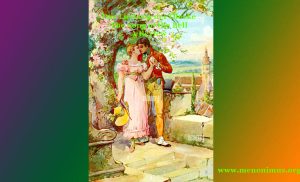Das Lied von der Glocke | The Song of the Bell | A Review
Das Lied von der Glocke The Song of the Bell A Review
Das Lied von der Glocke | The Song of the Bell | by Friedrich Schiller | A Review
“Das Lied von der Glocke” (The Song of the Bell) is a captivating and thought-provoking poem written by the renowned German poet and playwright, Friedrich Schiller. This poem, first published in 1799, is a masterful exploration of the human experience, craftsmanship, and the significance of bells in society. In this review, we will delve into the various aspects that make this work a literary gem.
Structure and Style:
Schiller’s “Das Lied von der Glocke” is composed of 378 lines divided into twenty-one stanzas. The poem follows a consistent rhyming pattern and rhythmic structure, which aids in the musical quality of the verses. The use of trochaic tetrameter creates a rhythmic flow that imitates the resonating sound of bells. The poem’s structured form serves as a metaphor for the disciplined and structured process of casting a bell, reflecting the themes of craftsmanship and diligence.
Themes:
Craftsmanship and Labor: At the heart of the poem lies a profound exploration of human craftsmanship and the laborious process of creating something of value. Schiller vividly describes the intricate steps involved in casting a bell, from gathering raw materials to the final product. This celebration of labor serves as an allegory for human endeavor, emphasizing the dignity and nobility of work.
Fate and Destiny: The bell, from its creation to its eventual ringing, becomes a symbol of destiny and fate. The poem’s narrative follows the journey of the bell from its formation to its various functions in society. This serves as a reminder that every individual’s life is also a journey with a predetermined course, highlighting the inescapable aspects of life.
Cycle of Life: The poem mirrors the cyclical nature of life, as the bell is cast, rung for various life events, and eventually falls silent. This mirrors the stages of human existence, from birth to death. The bell’s resonance, which fades over time, symbolizes the transient nature of life’s experiences.
Social Commentary: Schiller weaves in subtle social commentary, critiquing societal hierarchy and class distinctions. The bell’s creation requires the collective effort of people from all walks of life, highlighting the interdependence of society. However, this unity is contrasted with the divisions and inequalities that exist.
Imagery and Symbolism:
Schiller employs rich and vivid imagery to depict the bell-making process, making use of metaphors that extend beyond the literal act. The bell becomes a symbol of collective human aspirations, representing both the struggles and triumphs of humanity. The bell’s sound, which reverberates across different life events, symbolizes the shared experiences that connect individuals.
Emotional Resonance:
“Das Lied von der Glocke” evokes a wide range of emotions, from the anticipation and excitement of creation to the melancholy reflection on the passage of time. The poem’s emotional depth is enhanced by its evocative language and rhythmic structure, making it a deeply moving experience for readers.
Cultural Significance:
This poem holds immense cultural significance in German literature. It has been widely studied, referenced, and celebrated for its exploration of human existence, craftsmanship, and societal values. The poem’s themes continue to resonate with readers across generations, making it a timeless piece of literature.
In conclusion, Friedrich Schiller’s “Das Lied von der Glocke” is a masterpiece that transcends its form as a mere poem. It is a profound meditation on human labor, destiny, societal dynamics, and the passage of time. With its meticulous craftsmanship in both content and structure, this work stands as a testament to Schiller’s literary genius and remains a cornerstone of German literature. 0 0 0.
Das Lied von der Glocke The Song of the Bell A Review
You May Like: Beowulf-A Review
N.B. The article originally belongs to the book entitled ‘The Reviews of Epic Literature Around the World Vol-II‘ by Menonim Menonimus.








